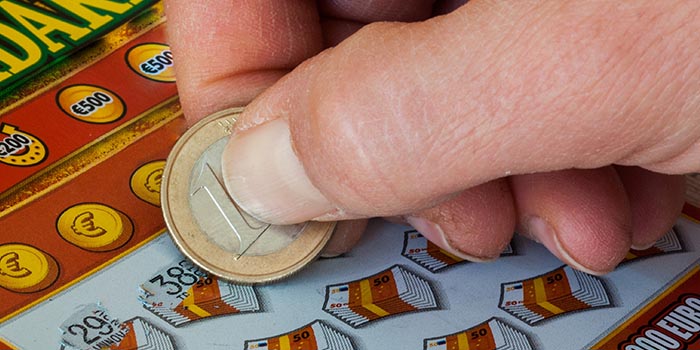- Casino
- By State
- Alabama
- Alaska
- Arizona
- Arkansas
- California
- Colorado
- Connecticut
- Delaware
- Georgia
- Florida
- Hawaii
- Idaho
- Illinois
- Indiana
- Iowa
- Kansas
- Kentucky
- Louisiana
- Maine
- Massachusetts
- Maryland
- Michigan
- Minnesota
- Mississippi
- Missouri
- Montana
- Nebraska
- Nevada
- New Hampshire
- New Jersey
- New Mexico
- New York
- North Carolina
- North Dakota
- Ohio
- Oklahoma
- Oregon
- Pennsylvania
- Rhode Island
- South Carolina
- South Dakota
- Tennessee
- Texas
- Utah
- Vermont
- Virginia
- Washington
- West Virginia
- Wisconsin
- Wyoming
- By State
- Slots
- Poker
- Sports
- Esports
Fact-checked by Angel Hristov
Underdog’s Peer-to-Peer Shift Enabled Business Growth
According to Underdog’s executives, the company collaborated with regulatory bodies in order to develop new compliant products that would still engage fans

Underdog Fantasy, a leading daily fantasy sports (DFS) operator, has deviated from its original operating model in several states in an attempt to expand its business while remaining compliant with local regulations. As a result, it now operates player-versus-house DFS in half of its US markets and peer-to-peer in the rest.
The Company Went Peer-to-Peer amid Regulatory Challenges
Underdog’s peer-to-peer version, Champions, is now available in 16 states. While this model has proven less profitable than the typical player-verses-house games, it allows the company to comply with the diverse rulesets in the colorful US regulatory landscape.
Many states use the distinction between player-versus-house and peer-to-peer to determine whether a product can be legally defined as betting or not.
As mentioned, the shift toward the peer-to-peer model was prompted by regulatory setbacks in certain states. Underdog, which was ordered to stop offering its original DFS offering in states such as Massachusetts and North Carolina, was able to shift toward the new model and continue operating.
According to Underdog’s executives, the company collaborated with regulatory bodies in order to develop new compliant products that would still engage fans. According to a statement by the company’s SVP of government affairs and partnerships, Stacie, Stern, the new product turned out to be even more fun for players.
The Peer-to-Peer Model Helped Other Companies Too
Despite the earlier regulatory scrutiny, Underdog not only did not have to scale down its business but actually managed to launch in three new markets. As a result, the company now operates player-versus-house games in 19 states and peer-to-peer games in 16 states.
The football season, meanwhile, boosted Underdog’s business, resulting in a spike in downloads.
The peer-to-peer model has been onboarded by some of Underdog’s competitors, including PrizePicks and even the American sports betting giant DraftKings.
In the meantime, player-versus-house DFS operators remain active in several states where their legality remains murky.
However, DFS operators have benefitted from the strong pushback against sweepstakes, which has largely occupied regulators in recent months. Sweepstakes companies, such as VGW, have been encountering increasing trouble across America as regulators, industry stakeholders and tribal entities alike have expressed dissatisfaction with the model’s lack of oversight.
Related Topics:
Although Fiona doesn't have a long-spanning background within the gambling industry, she is an incredibly skilled journalist who has built a strong interest in the constantly growing iGaming network. The team at Gambling News is glad to have her on our roster to help deliver the best stories as soon as they hit. Aside from writing, she loves to dabble in online casino games such as slots and roulette, both for her own enjoyment and also as research to better improve her understanding of the industry.
Next Article


Business
December 10, 2024
Bragg Insider Purchases Highlight Leadership’s Near-Term Confidence
Must Read
Business
April 11, 2025
NOVOMATIC Secures Supplier’s License in the UAE
Business
April 10, 2025
Regulators Greenlight Flutter’s Takeover of Snaitech
More Articles







Industry
April 16, 2025
Tennessee SWC Asks CFTC to Ban Sports Event Contracts

Industry
April 16, 2025
‘Tesla Terrorist’ Pleads Not Guilty to Litany of Charges

Casino
April 16, 2025
Jake’s 58 Casino Warns About Online Gambling Scam

Casino
April 16, 2025
Lucky Couple Hits $4.2M Megabucks Jackpot at Pechanga

Sports
April 16, 2025
North Carolina Could Double the Online Sports Betting Tax

Casino
April 16, 2025
Las Vegas Sands Faces Challenges Despite Analyst Optimism










